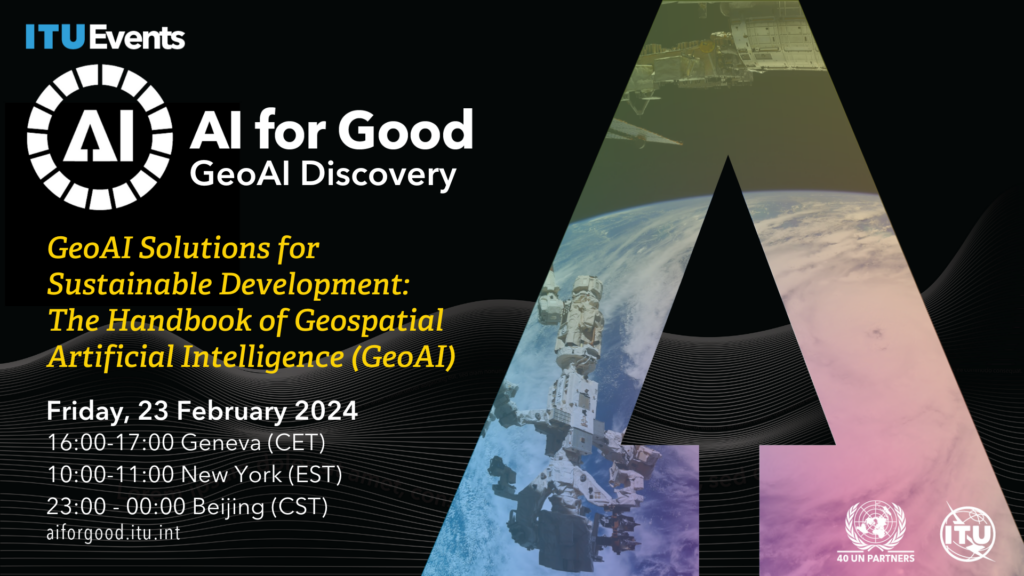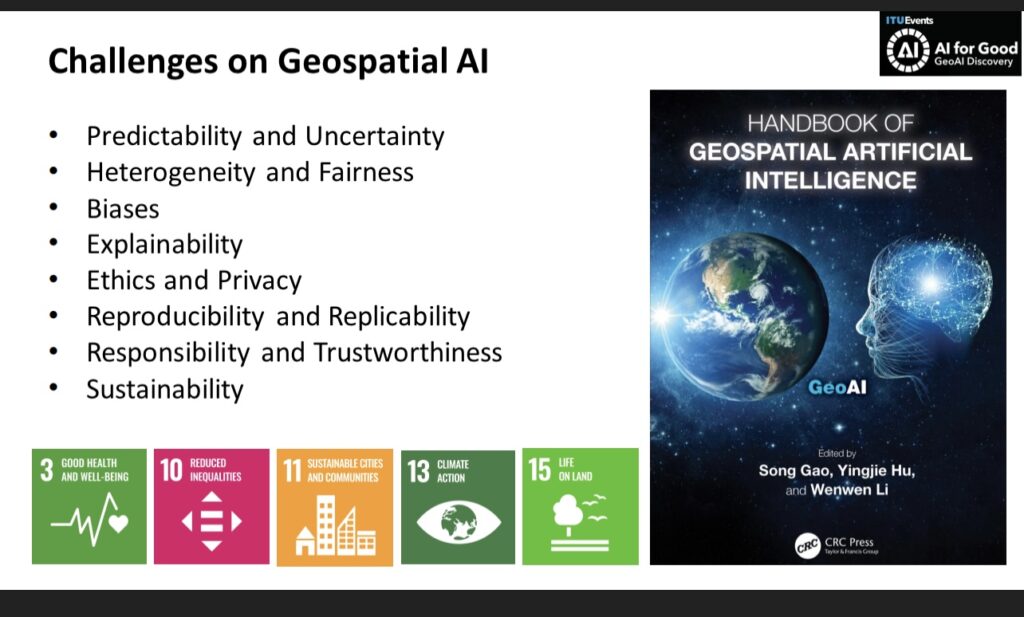The International Telecommunication Union (ITU) of the United Nations is organizing the webinar series on AI for Good. You are cordially invited to join the forthcoming one is about GeoAI Discovery.

Topic: GeoAI Solutions for Sustainable Development: The Handbook of Geospatial Artificial Intelligence (GeoAI)
Date and Time: 23 February 2024, Friday, at 16:00 CET Geneva | 10:00-11:00 EST, New York | 23:00-00:00 CST, Beijing
Recording link: https://www.youtube.com/live/QHSl4uvioMk?feature=shared
Geospatial Artificial Intelligence (GeoAI) is a rapidly evolving interdisciplinary field that integrates geospatial studies with AI advancements. In this webinar editors and authors of the recently published GeoAI Handbook discuss the fundamental concepts, methods, applications, and perspectives of GeoAI. The GeoAI Handbook is an excellent resource for educators, students, practitioners and decision-makers who are interested in utilizing AI technologies in a geospatial context.
Schedule:
20 mins: Round-table Q&A about the GeoAI Handbook: Maria Antonia Brovelli, Andrea Manara, and Song Gao
10 mins: Chapter 5: GeoAI for Spatial Image Processing: Wenwen Li and Samantha Arundel
10 mins: Chapter 7: Intelligent Spatial Prediction and Interpolation Methods: Di Zhu
10 mins: Chapter 10: Spatial Cross-Validation for GeoAI: Yingjie Hu
10 mins: Wrap-up

The GeoAI advancements provide promising solutions to address some of the United Nations SDGs but also pose concerns. For example, Chapter 3 presents some of the fundamental assumptions and principles that could form the philosophical foundation of GeoAI and spatial data science. It highlights the sustainability issue for training GeoAI and foundation models that could cause substantial electricity energy and resource consumptions and generate equivalent carbon emissions. Therefore, we need to call for Green AI for achieving the SDG-13: Climate Action. Chapters 13 and 14 discuss existing and prospective GeoAI tools to support humanitarian assistance practices and disaster responses using geospatial big data and machine learning methods, aiming to address the SDG-10: Reduce Inequality and SDG-11: Sustainable Cities and Communities. Chapter 15 focuses on using GeoAI for infectious disease spread prediction to address the SDG-3: Good Health and Well-Being.
AI technologies are advancing rapidly, and new methods and use cases in GeoAI are constantly emerging. As GeoAI researchers, we should not purely hunt for latest AI technologies but should focus on addressing geographic problems and solving grand challenges facing our society as well as achieving sustainable development goals. We also need research effort toward the development of responsible, unbiased, explainable and interpretable GeoAI models to support geographic knowledge discovery and beyond. This GeoAI Handbook was completed in the middle of 2023. While it cannot summarize all GeoAI research in this one handbook, it provides a snapshot of current GeoAI research landscape and helps stimulate future studies in the coming years.